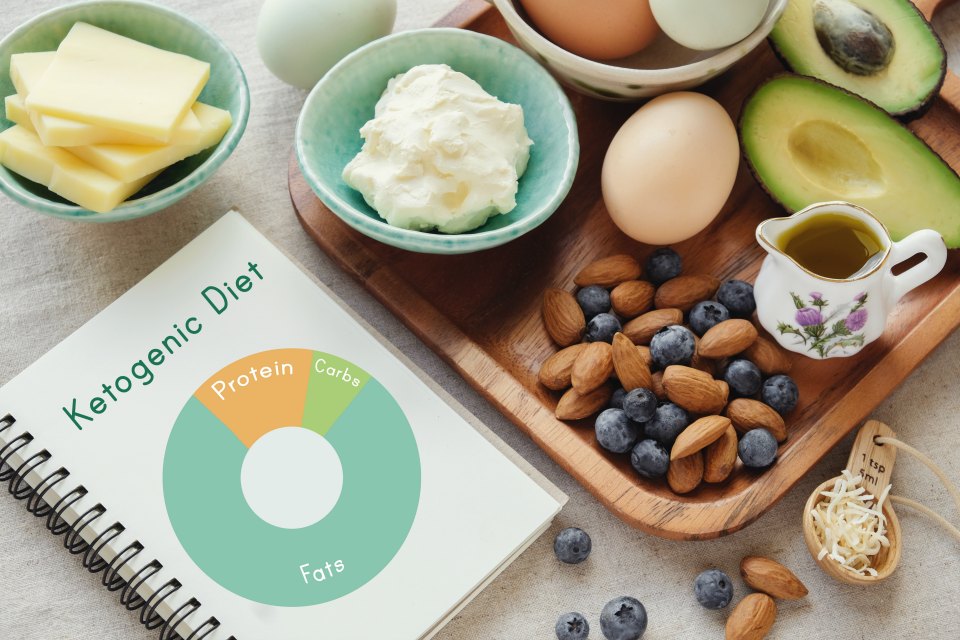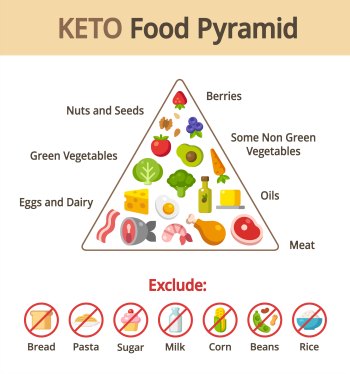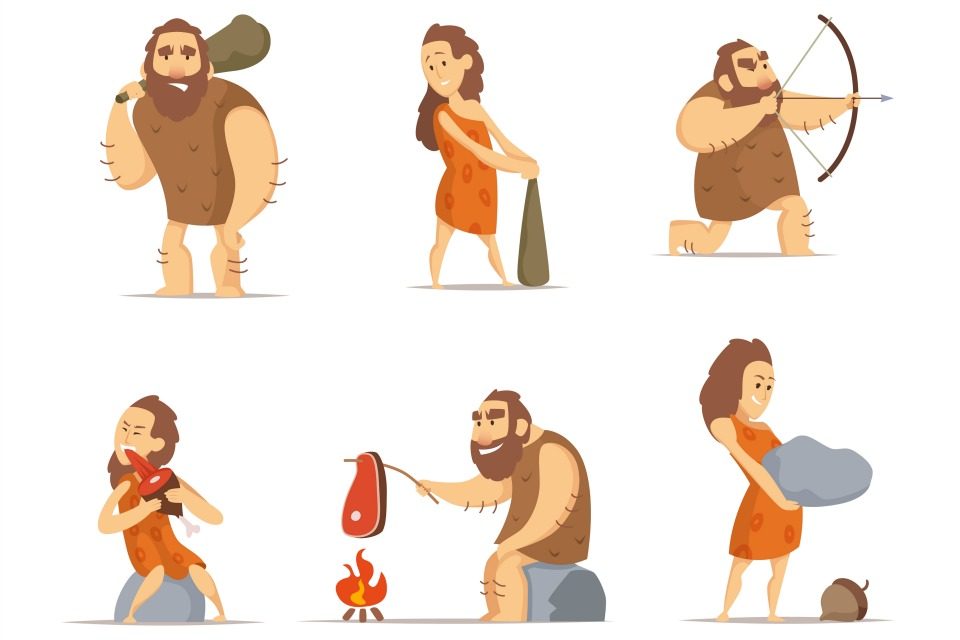- HIITCore Fitness | Braintree & Burlington, MA
- (781) 780-5577
- info@hiitcorefitness.com

Diet Discussions: The Ketogenic Diet
By Brianna Laurila, RD, LDN
In today’s world there are a surplus of diets to choose from. These popular diets range from restricting fat to avoiding carbohydrates to extremely limiting calories. Most of these fad diets adjust and stray from the recommended macronutrient percentages. The typical macronutrient ranges for adults are 10-35% of calories from protein, 20-35% of calories from fate, and 45-65% of calories from carbohydrates.
One of the most popular diets today is the Ketogenic Diet (aka the Keto diet). This particular diet restricts carbohydrates and increases fats. The macronutrient distribution for the Keto diet is 70% fat, 25% protein, and 5% carbohydrates. This extreme change in macros forces your body to change the way it functions. Normally, when you consume a food high in carbohydrates, your body produces glucose. Glucose is then used and converted to energy.
 So what happens when you restrict your main source of energy? Your body adapts and searches for the next best source: fat. Limiting carbohydrates and increasing fats forces the body to enter a state known as ketosis. During ketosis, the body burns fats rather than carbohydrates. How you ask? Well, the body breaks down fats in the liver, which then produces an end product: ketones. These ketones are then used as the body’s energy source. The goal of the Keto diet: change your metabolism to ketosis by starving your body of carbohydrates and breaking down fats to produce ketones for energy.
So what happens when you restrict your main source of energy? Your body adapts and searches for the next best source: fat. Limiting carbohydrates and increasing fats forces the body to enter a state known as ketosis. During ketosis, the body burns fats rather than carbohydrates. How you ask? Well, the body breaks down fats in the liver, which then produces an end product: ketones. These ketones are then used as the body’s energy source. The goal of the Keto diet: change your metabolism to ketosis by starving your body of carbohydrates and breaking down fats to produce ketones for energy.
To get started on the Ketogenic diet, remove practically all carbohydrates. The recommended total carbohydrate goal for this diet is 30-35 grams of carbohydrates per day. Avoid all carbohydrates including grains (bread, pasta, cereal), sugars (honey, white sugar, agave, syrup), starchy vegetables (potatoes, beans, legumes), and (sadly) even most fruits. The main sources of food within the Keto diet include all meats, green leafy vegetables, non-starchy vegetables (broccoli, cauliflower), nuts and seeds, high fat dairy, and fats (such as oils, butters, etc).
There is little to no scientific research on diets such as the Ketogenic diet regarding weight loss and other possible health benefits. So, most claims are not completely accurate. The only accurate and proven claim regarding the Ketogenic diet is that it has been used for hundreds of years to help in the treatment and improvement of epilepsy in infants and children. The Keto diet claims to offer significant and quick weight loss, improved blood sugars, increased energy, normalized hunger and more.
To be honest, you may lose a bunch of weight on the Keto diet. But, that could be because you are a total carb lover thus limiting your carb intake will obviously have a huge effect on your normal calorie and sugar consumption resulting in weight loss.
Before starting any diet, ask yourself how sustainable the diet is. Will you be able to maintain this lifestyle? Is this just a quick fix? Any diet that severely restricts any major part of the normal diet is probably not the best choice. As with many diets, you may lose weight quickly, return to your normal eating pattern, gain some weight back, and start the loop all over again. This inevitably disrupts the normalcy of your metabolism, which actually will make it more difficult to lose weight in the future. Don’t be fooled by this diet or similar diets. Focus on what you should eat, eat in moderation, and focus on nourishing your body.
(Remember to take into consideration your own food allergies/intolerances, gastrointestinal disorders, medical history and diagnoses, and body composition goals. It is always recommended to collaborate with a physician, trainer, and dietitian for optimal performance and health management.)



